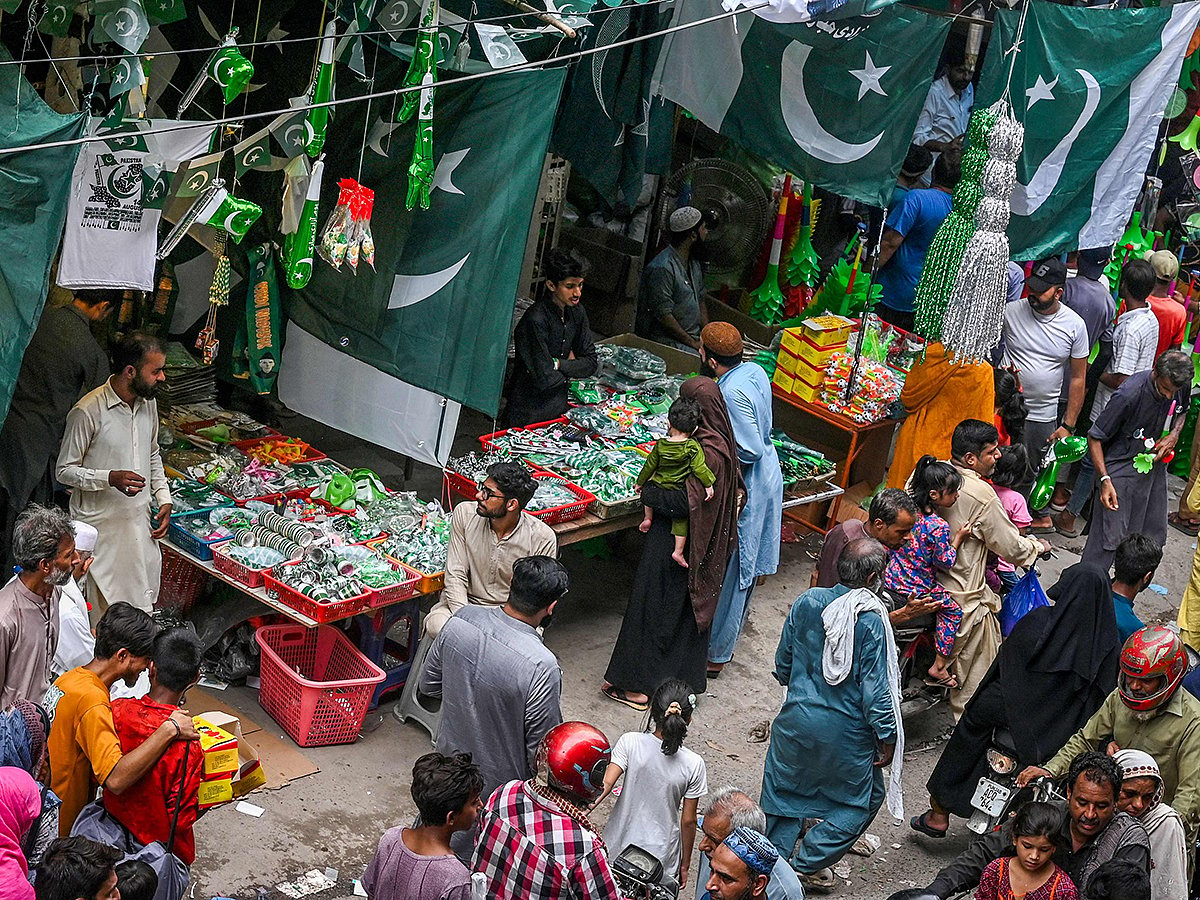From struggle to strength: Charting Pakistan’s next chapter
Hard-earned lessons from history can be the foundation for national renewal

Promising justice, equality and fairness Mohammed Ali Jinnah had waged a legal and constitutional struggle — bereft of agitation, strikes, or civil disobedience — for the creation of a new state - Pakistan. Yet. At the time of independence Punjab, the largest province of undivided India, was engulfed in an inferno of communal violence and arson. The senseless orgy of killing left both halves of Punjab largely devoid of the other’s faith. Nearly 15 million people were uprooted in one of history’s largest forced migrations, and over a million lost their lives in communal violence that defied all notions of humanity. No one in leadership saw it coming.
The new state of Pakistan was born with meagre resources. Millions languished in refugee camps — my early childhood memories are of endless queues outside ‘Rehabilitation Office’ in Lahore. The pain of those who were plucked from their ancestral homes left a lasting imprint on me, shaping my pacifist convictions. I came to believe that violence can never resolve inter-state disputes — empathy can. After all, states are made up of men, women, children, brothers, sisters, and families — our shared future.
Early history
Pakistan’s early history reeks of insecurity and near destitution — but also of vigour, hope, and indomitable resolve. Despite repeated stumbles, the common man picked up the pieces and tried to nurture the “promised land.”
There is perhaps no parallel in modern history of a state losing its founder within a year of its independence. Jinnah — a man of impeccable character and tenacity — passed away in September 1948. Theories abound about his last days, but his trusted lieutenant, Prime Minister Liaquat Ali Khan, was mysteriously gunned down within four years on independence. His assassin was shot within 19 seconds. As if that were not enough, the first Pakistani widely believed to be next in line to lead the army died in a suspicious plane crash. From there, Pakistan’s leadership faltered.
We faced multiple conflicts, but none more devastating than the rupture between East and West Pakistan. The 1971 conflict between the two wings was an absence of empathy, political inclusion, and vision. The eastern wing became Bangladesh, leaving Pakistan geographically and emotionally diminished.
I still recall the OIC delegation led by Secretary-General Hasan El Tuhami departing from Lahore Airport in February 1974 to invite Sheikh Mujibur Rahman, the triumphant leader of Bangladesh, to attend the second OIC Summit. I witnessed Mujib’s arrival the next day — a moment that, however symbolic, briefly bridged the wounds of separation.
Measure of confidence
Under Zulfikar Ali Bhutto’s charismatic leadership, Pakistan regained a measure of confidence after the trauma of dismemberment. But further trials lay ahead.
In my view, Pakistan’s biggest foreign policy blunder was joining the American-led war against Soviet intervention in Afghanistan in 1979. Our rulers allowed Pakistan to be used as a “cat’s paw” for Western powers. The consequences have been catastrophic. These are:
Militarisation of society: The influx of arms and militias fuelled a culture of violence.
Radicalisation: Pakistan became a breeding ground for extremist ideologies that had no roots in our traditional social fabric.
Economic strain: Hosting over 3 million Afghan refugees placed immense pressure on resources, and decades later, hundreds of thousands still remain.
War on terror fallout: Post-2001, Pakistan became a frontline state again, suffering over 80,000 deaths and economic losses exceeding $150 billion according to official estimates.
These choices eroded our ethical, moral, and civilisational values. Even our Independence Day — once a moment of sober reflection — has degenerated into noisy “tamasha” and hollow sloganeering. Had we stood firm in 1979, Pakistan might have avoided the vortex of violence and foreign entanglements that followed.
Today, Pakistan stands at another crossroads. The economy remains under severe strain, with external debt surpassing $130 billion and inflation biting deep into household incomes. Public trust in institutions is at a historic low. According to Transparency International’s 2024 index, Pakistan ranks 133rd out of 180 countries in perceived corruption. Over 25 million children remain out of school, while basic health indicators lag far behind regional peers.
New course of action
But history is not destiny. The very resilience that allowed ordinary Pakistanis to survive partition, rebuild after wars, and endure political instability can still be harnessed to chart a better course. This requires:
Reforming governance — Merit-based appointments, transparent decision-making, and an end to elite capture of state resources.
Economic reorientation — Prioritising domestic industry, agriculture, and education over prestige mega-projects.
A principled foreign policy — Avoiding entanglement in other nations’ wars and focusing on regional peace and trade.
Social investment — Channelling resources toward health, education, and skill development to unleash the potential of our 240 million citizens.
Institutional accountability — Ending impunity for political, bureaucratic, and corporate misconduct.
Provide justice – Faith in the judiciary is at an all-time low. Its independence needs to be restored.
Pakistan’s story is far from over. But if we are to honour the dreams of our forefathers, we must act now. The call is not for slogans, but for sustained, principled action that places the ordinary citizen at the heart of national policy.
History has shown that nations that learn from their mistakes, that turn moments of crisis into opportunities for renewal, not only survive — they thrive.
Sajjad Ashraf served as an adjunct professor at the Lee Kuan Yew School of Public Policy, National University of Singapore from 2009 to 2017. He was a member of Pakistan Foreign Service from 1973 to 2008 and served as an ambassador to several countries.
Network Links
GN StoreDownload our app
© Al Nisr Publishing LLC 2026. All rights reserved.